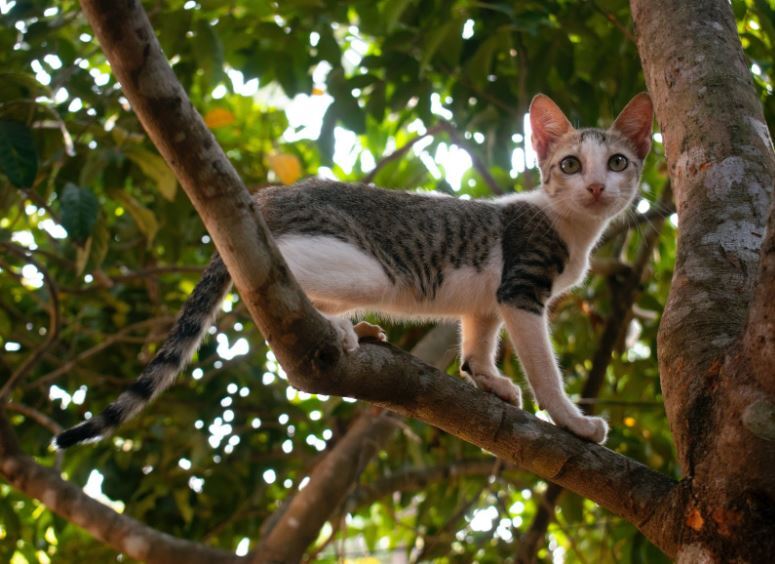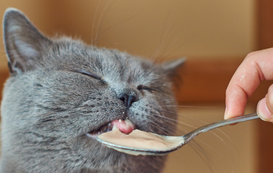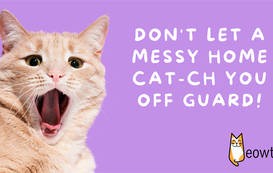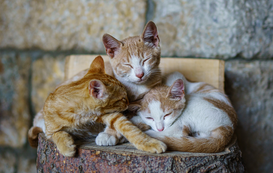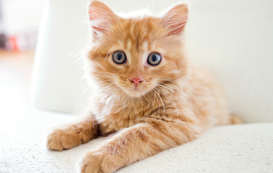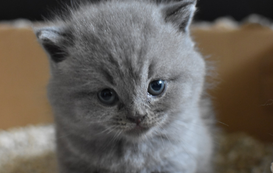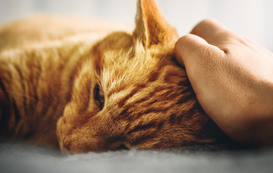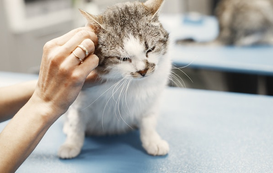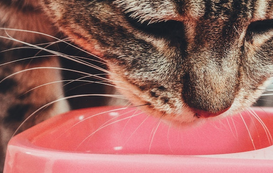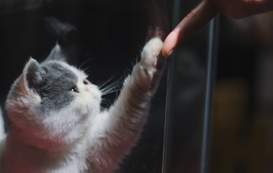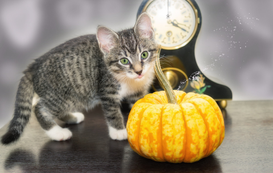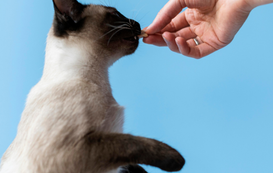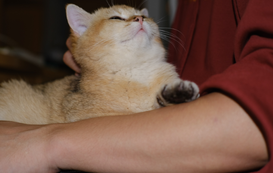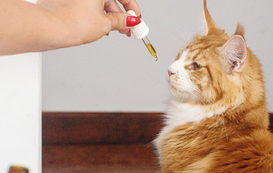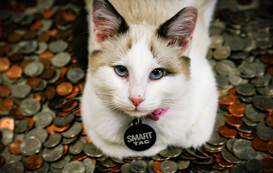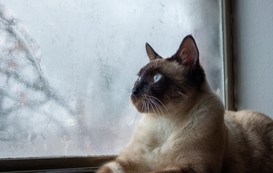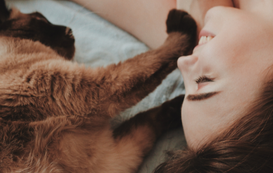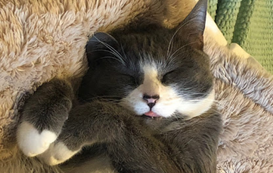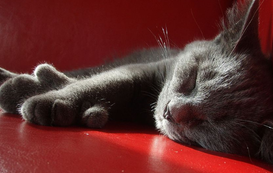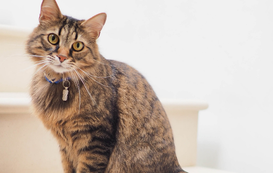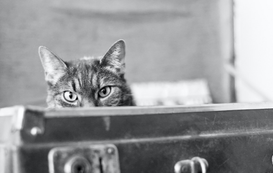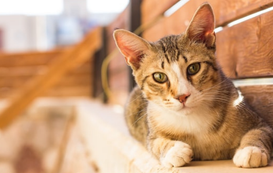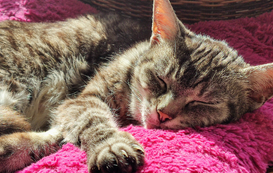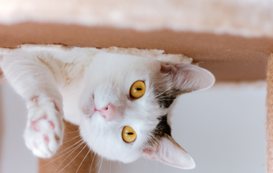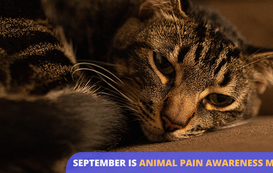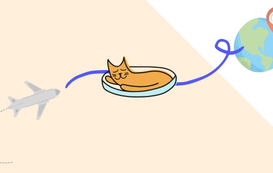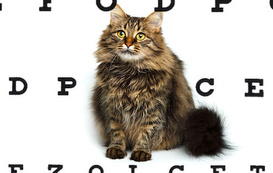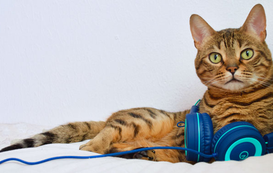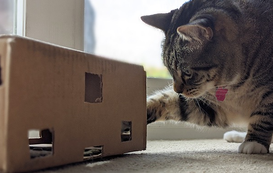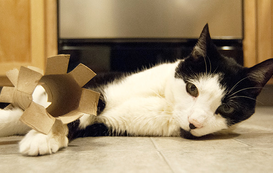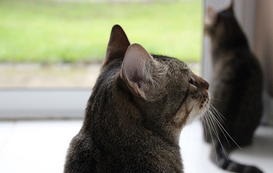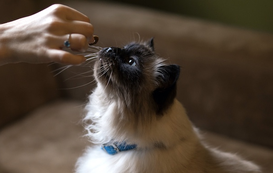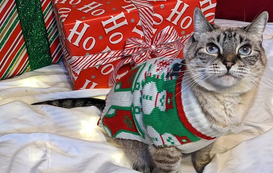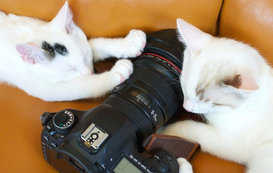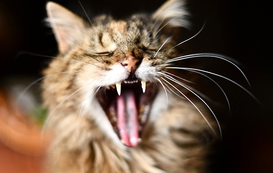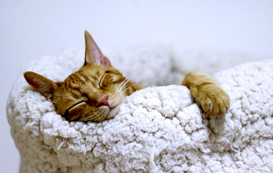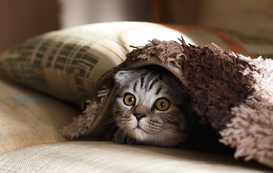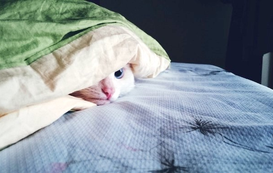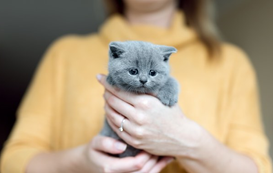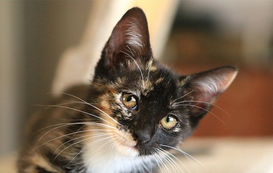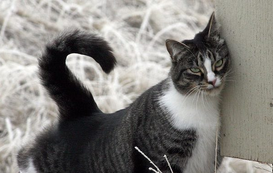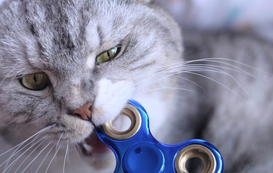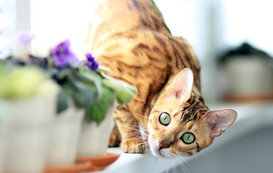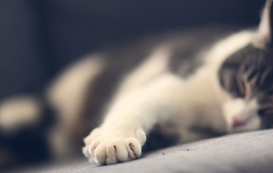As a new cat parent, you've probably noticed that your kitty spends a lot of time grooming. Many a seasoned cat parent would agree that grooming seems to be their fur baby's favorite pastime. If they're not eating, they're sleeping; if they're not sleeping, they're grooming! (Such is the feline way of life!)
However, just because it happens a lot, that doesn't mean that your cat's grooming sessions should always be a "DIY" endeavor! Most kitties enjoy getting a little help from a human when it comes to grooming. And, if your kitty's grooming efforts aren't up to snuff for some reason (we'll discuss those reasons in a meow-ment), then it's going to be your job to help keep your cat's fur groomed to perfection.
So, here are the basics on why cats may drop the grooming ball, how you can help them look and feel their best, and what to do if you run into a snag:
When grooming isn't your cat's top purr-iority...
While it's true that most cats adequately groom themselves without human intervention, there are some occasions when they might require a little more attention and help from their caregiver. Healthy cats tend to groom themselves diligently, but seniors frequently cease grooming altogether, and even considerably younger cats can't reach certain parts of their bodies.
Further, physical challenges and mental or emotional health issues can impact your cat's willingness or ability to groom themselves, so it's essential to pay attention and notice if your cat's grooming habits change. A lack of grooming could signal your cat isn't feeling well and needs medical evaluation. For instance, kitties who develop joint pain and stiffness from arthritis may find it difficult to groom and, sadly, eventually tire of even trying to care for their own fur.
There is also an aspect of motivation involved regarding feline grooming habits. Some kitties lose interest in grooming during certain parts of the year, such as when winter has them feeling a little blue. (Yes, that happens in kitties, too!) Others may neglect to groom if they're feeling down because of a significant change in their routine or environment.
No matter what may cause your cat to groom less often, taking care of their fur is just one more fantastic way to show them that you love them and serves as an opportunity to build trust and strengthen your bond.
The basics of a good grooming kit...
Finding a brush your cat likes is the key to starting your grooming efforts off on the right paw. There are two great choices for beginners: A glove brush, which is a glove you put on your hand; then, you pet your cat to groom them. (These are an excellent option for kitties who seem opposed to a traditional brush.) If you prefer a brush, a rubber one with lengthy "fingers" can reach deep into cats' coats to remove loose hair while also massaging them, so it can be very relaxing to the cat while also being highly effective.
In addition to a good brush, you'll also want some other essential accouterments in your kitty's "beauty kit" - a flea comb, nail clippers, bull-nose scissors, and cat wipes for regular upkeep. You may also include some dry shampoo or a jar of cornstarch. (Note: There are some other essential items you will need as you progress in your grooming efforts, which we'll be sure to cover in future Grooming 101!)
Make grooming a great experience...
When handling your cat with the brush or glove, keep your aspect (i.e., angle of approach) low. Cats may find a human approaching them from overhead to be threatening since this is how they frequently fall victim to other animals in the wild. It is also helpful to speak to your kitty in a calm, soothing voice while grooming them. Some cats even seem to like soft music during grooming sessions.
Consider creating a ritual, such as sitting in a particular spot in the sunlight in the early morning or placing them on a favorite fleece throw. Doing so will make the mood genial and help grooming feel like a positive experience, even if they enjoy being groomed right off the bat. Your cat may wish for you to get on the ground with them, or they may prefer to be high up, like on a kitchen countertop - they'll let you know what they like if you try various options.
Is your kitty just not into it, no matter where it happens? No worries! Most cats eventually enjoy being groomed by their human, so don't be put off if they seem unenthused at first - with time and patience, your cat will grow to trust the process and enjoy the pampering!
Tackle terrible tangles...
Even if your cat does love the experience, grooming isn't always smooth sailing for the human or the kitty. It can be especially challenging to brush a cat's coat if they have not been groomed regularly, particularly if they have longer hair. (The brush will catch in their fur, and you're likely to hear your kitty complain in the form of a loud, alarming cry that is the equivalent of a kitty "Ouch!")
It's important not to hurt your kitty by trying to force the bristles through the tangle and never attempt to pull out the clumped fur directly from the skin. (That is very painful and could permanently turn your kitty against being groomed while decreasing the trust and bond you've built.) If you ever try to cut out a mat (which is best avoided), it is vital to use bull-nose scissors to protect your cat's delicate skin from the risk of being cut.
Instead of dealing with mats as-is, try a non-toxic de-matting spray designed specifically for cats. (Always keep it on hand if your cat is prone to mats.) Some cats don't like products being sprayed near them - much less on them! - so this product isn't for every cat. You can try spraying it on your hands away from your cat and then applying their fur manually if this is an issue. The spray will lubricate the hair to allow you to "work through" the mat, first with your fingers, then with the brush.
If mats are too prevalent or you cannot adequately or comfortably deal with them, it may be time for professional grooming. Once your kitty's fur is in great shape, it can be maintained with regular at-home brushings. Ask your veterinarian if they do grooming on-site or if they can recommend a professional groomer who has experience with cats.
The Takeaway
As a new cat parent, you're learning many ways to enjoy spending time with your kitty, and grooming can definitely be one of them. Rather than a chore or something to check off a to-do list, it can be a special, peaceful time between you and your cat, helping them feel cared for and pampered by the human they love. So carve out regular grooming times, and your kitty will surely be purr-leased.
Photo by Rodnae Productions on Pexels
Ready to make your cat's fur shine? Find a cat sitter on Meowtel today!

